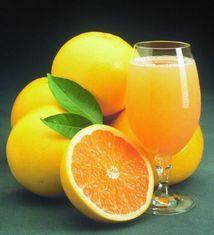
While the health debate continues to rage, nutritionists are now warning that fruit juices and smoothies may not be as healthy as we think.
As the consumption of juices continues to rise, diet experts are warning that the products’ sugar content could outweight any benefits if consumed to excess.
New figures show that sales of chilled and long-life fruit juice have surged during the past two years, with what was considered healthier alternatives replacing the traditional tea and coffee.
According to market researchers Mintel, Britain now drinks 2.2 billion litres of juice drinks each year, the equivalent of more than 36 litres for every man, woman and child.
The market is now worth around £2.3 billion, and while orange and apple juice still account for 70 per cent of sales, demand for other “old fashioned” juices is down.
Grapefruit juice fell by 23 per cent over the past two years, while tomato juice sales dropped by a massive 60 per cent. At the same time, the market for exotic fruit drinks has soared by 133 per cnet.
The Mintel report also found that sales of juices and juice drinks in pubs and restaurants were also on the rise.
However, nutritionists believe that the health benefits of fruit drinks are too often exaggerated and some are concerned that they are being used to replace fresh fruit in the diet.
Ursula Arens, of the British Dietetic Association, said: "Small quantities of fruit juice are a helpful way to get more vitamins, but the British diet is not particularly low in vitamin C.
"If you look at a typical serving size, you are getting a lot of calories very quickly. As being overweight is more of a public health problem than a shortage of vitamin C, people need to view these [drinks] with caution."



